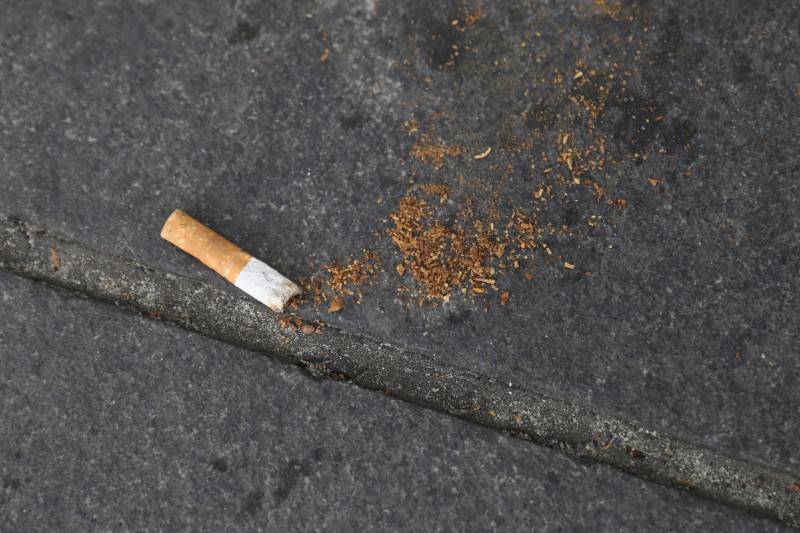A cigarette and tobacco products tax was voted down unanimously by the Kenai Peninsula Borough Assembly last Tuesday, but residents may see it on the agenda again later this year.
The tax proposal was brought forth by assembly member Willy Dunne as a way to increase borough revenue. The proposed tax would have been 5 cents per cigarette, and then a 10 percent tax on the wholesale price for other tobacco products.
“We’ve explored a number of revenue sources and this is a potential revenue source that is used around the state and this proposal would bring in roughly $4.8 million to the borough if adopted,” Dunne said during the Sept. 4 assembly meeting.
Public testimony from local business owners helped steer assembly members to postpone and then eventually vote down the ordinance altogether.
Lynn Shrader owns a small mail-order business outside of Kenai. He testified at last Tuesday’s meeting and said he frequently ships to rural Alaska, and 95 percent of his sales are tobacco.
“This new tax is going to put me out of business,” Schrader said of the proposed tax. “It’s blatantly unfair to start with. I’d like an exemption for my customers who are outside of this borough. I don’t have a single customer in the borough. This would be sticking a knife in my back.”
Patricia Patterson, owner of Lucky Raven Tobacco near Soldotna, also testified at the meeting. She said there were many things she didn’t like about the tax, and that she believed the projected income made from the tax is “totally off the wall.”
“I have been running a tobacco store for 18 years and I can show you in hard numbers that we are losing about 20 percent every year because tobacco use is going down and not being picked up,” Patterson said. “This is a dying industry.”
Patterson said she is not fighting a tax on cigarettes. She says taxing other tobacco products would drive peninsula customers away from her store and on to the internet where they can purchase similar products for a smaller price tag.
“I’m not really here to fight the face-to-face sale tax,” Patterson said. “I figured it might be coming. I absolutely 100 percent feel that taxing something that you can buy out of Alaska, on a phone, in an app and get here in three days, is absurd. So something that I buy for $4, I retail at $18, and it’s sold at Cigar Thompson’s for $8.50, and that’s what I’m up against. I can’t believe that you would be taxing something that (creates) another reason to buy someplace else.”
In a memo written by Dunne addressing the assembly, Dunne points out that other boroughs and municipalities in Alaska have already adopted similar taxes. The Mat-Su Borough currently imposes an 11.5 percent tax on cigarettes and a 55 percent tax on the wholesale price of other tobacco products, bringing the borough roughly $8 million annually, the memo states.
Alaska is home to some of the nations highest tobacco taxes. In 2009, Juneau increased its cigarette and tobacco tax to $5 a pack. Two years later, the smoking rate for the Juneau School District decreased by 38 percent, according to Alaska Health Fair Inc, a nonprofit that promotes statewide health education. Today, the youth smoking rate in Juneau is 9 percent, 2 percent below the national average.
The Campaign for Tobacco-Free Kids, a U.S. advocacy organization working to reduce tobacco use, shows three Alaska cities placing in the top ten highest combined state and local cigarette taxes. Chicago holds the highest cigarette tax in the U.S. at $6.16 per pack tax, followed by New York City. Juneau is fifth at $5 per pack, Sitka is in eighth place at $4.46 per pack and Anchorage has the ninth highest cigarette tax in the nation at $4.41 per pack.
Dunne also said in the memo that the additional cost for cigarettes and tobacco products could deter the use of the products, in particular youth.
Borough administration estimates the Kenai Peninsula Borough makes $29.5 million in taxable tobacco sales a year, and 80 percent of which is generated by cigarettes, according to Dunne’s memo.
Others testified they wanted to see a wide-based tax that doesn’t pick certain groups, like tobacco purchasers, to tax. Others said the borough should tighten their belt and make cuts before any taxes are proposed.
After the testimony, Dunne moved to postpone the vote to the Oct. 9 assembly meeting in an effort to rework wording that would impact other tobacco products.
“I’m willing to rework this if necessary to address other tobacco product issues,” Dunne said.
Mayor Charlie Pierce made a comment that updated information and revenue numbers would be available in November. The motion to postpone was voted down.
Assembly member Dale Bagley had an amendment he wanted to make to the ordinance, but decided to not support the ordinance at this time, and wait until later this year when more information was available.
Dunne said he understood the reluctance to pass the ordinance but said he hopes a modified version of the ordinance could be considered in the future.
“I was hoping we could postpone (the ordinance) so we can do more work on it,” Dunne said. “I understand we’ll have some more financial information in November and that we can always look at another option then. I understand that this will fail tonight. I hope that we can work together to come up with solutions, and perhaps a modified cigarette tax or tobacco tax that does not tax the other tobacco products can be something we consider in the future.”
Reach Victoria Petersen at vpetersen@peninsulaclarion.com.

